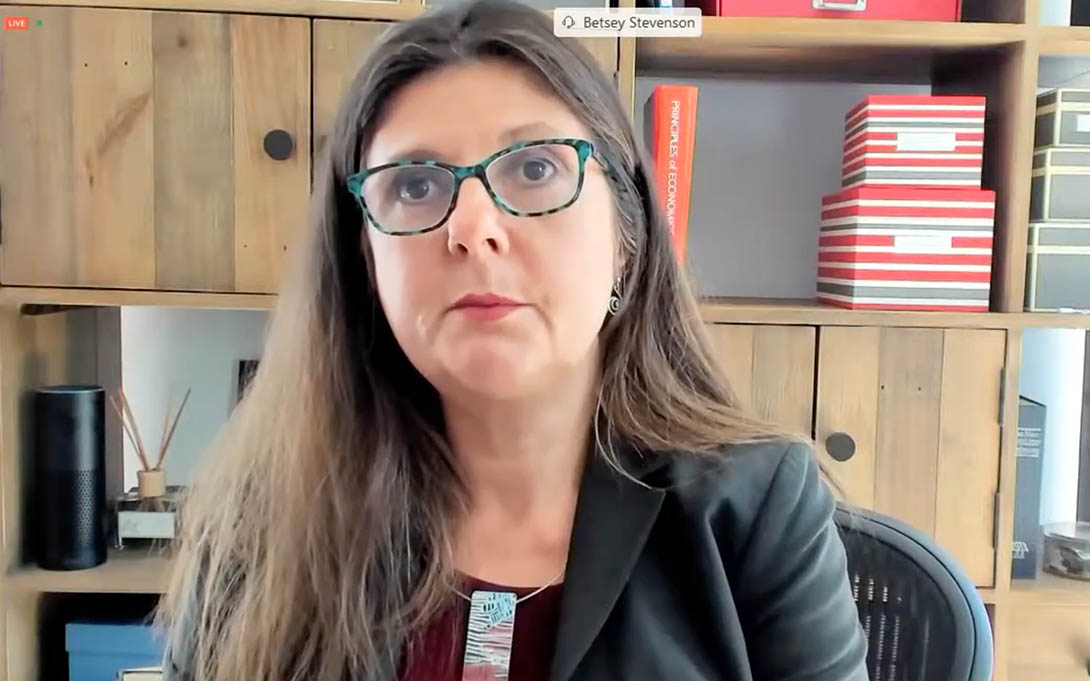
The Ford School's Betsey Stevenson has been commenting on the President's influence on the economy, the growth of the service economy, and the role union workers will play in the upcoming election.
“Betsey Stevenson on the power the president has over the economy” Columbia IGP, October 11, 2024 - Examining the impact the President has on the economy, Stevenson claimed, “Not very much in the short run, but actually a lot in the long run.” The dilemma with the way Americans think about the economy, Stevenson argues, is, “Those kinds of things that are going to help economic growth 30, 40 years down the road, we got to spend today, that’s where the president has the most potential influence, but what people think about is, ‘what have you done for me this week?’.”
“Why the name Taft-Hartley got airplay during the dockworkers' brief strike” Planet Money, October 7, 2024 - Stevenson addressed the influence union workers may have on the 2024 elections stating, “The Republican Party is different, and that has led it to attract more union members. And union members really dislike Taft-Hartley. We are in a situation where union votes could go to either candidate, and so both candidates are worried about angering the unions.”
“A lot of ‘unskilled’ workers actually aren’t” Bloomberg, October 7, 2024 - Stevenson urges the audience to recognize “That the U.S. has become a service economy… In this context, it’s necessary to rethink assumptions about what kinds of jobs matter and, more important, how different kinds of work are valued… As we enter an era in which the value of 'hard skills' may be diminishing due to automation, the value of "soft skills” — such as empathy and communication — will rise. The future of work may lie not in competing with machines on tasks they do better, but in embracing the human touch that technology can’t replicate.”

